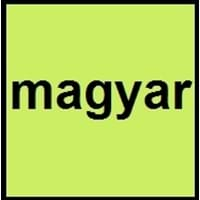Hungarian vs Croatian
- Hungarian language has only preserved most of its ancient elements.
- 'Magyar' is the Hungarian name for the language, the 'Magyar' is also used as an English word to refer to Hungarian people.
- In croatian language, everywhere there are words without vowels.
- Though croatian language was born in 9th century, the first written document in croatian was in 11th century.
Hungarian and Croatian Language History
Comparison of Hungarian vs Croatian language history gives us differences between origin of Hungarian and Croatian language. History of Hungarian language states that this language originated in 1192 AD whereas history of Croatian language states that this language originated in 9th century. Family of the language also forms a part of history of that language. More on language families of these languages can be found out on Hungarian and Croatian Language History.
Hungarian and Croatian Greetings
People around the world use different languages to interact with each other. Even if we cannot communicate fluently in any language, it will always be beneficial to know about some of the common greetings or phrases from that language. This is where Hungarian and Croatian greetings helps you to understand basic phrases in Hungarian and Croatian language. Hungarian word for "Hello" is szia or Croatian word for "Thank You" is hvala. Find more of such common Hungarian Greetings and Croatian Greetings. These greetings will help you to be more confident when conversing with natives that speak these languages.
Hungarian vs Croatian Difficulty
The Hungarian vs Croatian difficulty level basically depends on the number of Hungarian Alphabets and Croatian Alphabets. Also the number of vowels and consonants in the language plays an important role in deciding the difficulty level of that language. The important points to be considered when we compare Hungarian and Croatian are the origin, speaking countries, language family, different greetings, speaking population of these languages. Want to know in Hungarian and Croatian, which language is harder to learn? Time required to learn Hungarian is 44 weeks while to learn Croatian time required is 44 weeks.





